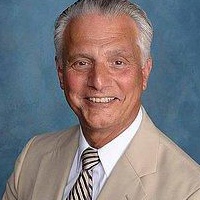 Garnet Valley Felony Lawyers, Pennsylvania
Garnet Valley Felony Lawyers, Pennsylvania
Sponsored Law Firm
-
 x
x

Click For More Info:
-
The Law Offices of Richard J. Fuschino Jr.
1600 Locust St Philadelphia, PA 19103» view mapCriminal Defense Protecting Your Freedom and Your Reputation
Richard J. Fuschino has been defending people against criminal charges for most of his professional career.
800-973-5371
Sponsored Lawyers
1-2 of 2 matches
Criminal, Car Accident, Wrongful Death, DUI-DWI, Felony
Attorney Christopher Bokas handles all felonies and misdemeanors, including white collar crimes, juvenile crimes, drug offenses, parol and probation violations, drunk driving, and traffic violations. Mr. Bokas has ample experience trying jury and bench trials, and handles his cases with great care and professionalism. Each of his clients is given individual attention and all the time and effort necessary to bring about a favorable result. This is essential, because there is no substitute for thorough preparation. Mr. Bokas examines all facets of his cases, looks at all the evidence, and researches the applicable law before deciding on a proper defense and strategy. All decisions are shared with the client, as team efforts are highly valued. I practice in the federal courts, and all the state courts in the Philadelphia and suburban area. including common pleas court, municipal courts and magisterial district courts. Mr. Bokas graduated from Temple University in 1970 with a degree in political science, with honors, and attended the University of Baltimore from which he graduated in 1974 with a law degree. He immediately undertook the practice of law with enthusiasm and a sense of mission to right wrings and bring about justice for his clients. Mr. Bokas is a member of numorous legal and civic organizations, including The Pennsylvania and Deleware County Bar Associations. He is also active in The Pan Epirotic Society, for which he has served as legal advisor, as well as The Pan Macedonian Society. He has been serving the community for 39 years as a practitioner and a trial lawyer, with an emphasis on criminal law. Mr. Bokas practices criminal law in all levels of the Pennsylvania state, county, and local courts as well as in the United States District Court.
(more)


 Richard Fuschino Philadelphia, PA
Richard Fuschino Philadelphia, PA AboutThe Law Offices of Richard J. Fuschino Jr.
AboutThe Law Offices of Richard J. Fuschino Jr. Practice AreasExpertise
Practice AreasExpertise

